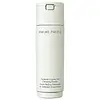What's inside
What's inside
 Key Ingredients
Key Ingredients

 Benefits
Benefits

 Concerns
Concerns

 Ingredients Side-by-side
Ingredients Side-by-side

Mannitol
HumectantSodium Cocoyl Glycinate
CleansingSodium Lauroyl Glutamate
Zea Mays Starch
AbsorbentSilica
AbrasiveBetaine
HumectantAllantoin
Skin ConditioningPotassium Laurate
EmulsifyingParfum
MaskingWater
Skin ConditioningDextrin
AbsorbentTrehalose
HumectantButylene Glycol
HumectantDisodium EDTA
Dipotassium Glycyrrhizate
HumectantButylphenyl Methylpropional
PerfumingLactobacillus Ferment Lysate
Skin ConditioningLimonene
PerfumingGeraniol
PerfumingSodium Hyaluronate
HumectantCamellia Sinensis Leaf Water
MaskingGossypium Herbaceum Extract
Skin ConditioningCI 19140
Cosmetic Colorant1,2-Hexanediol
Skin ConditioningEthylhexylglycerin
Skin ConditioningMannitol, Sodium Cocoyl Glycinate, Sodium Lauroyl Glutamate, Zea Mays Starch, Silica, Betaine, Allantoin, Potassium Laurate, Parfum, Water, Dextrin, Trehalose, Butylene Glycol, Disodium EDTA, Dipotassium Glycyrrhizate, Butylphenyl Methylpropional, Lactobacillus Ferment Lysate, Limonene, Geraniol, Sodium Hyaluronate, Camellia Sinensis Leaf Water, Gossypium Herbaceum Extract, CI 19140, 1,2-Hexanediol, Ethylhexylglycerin
Zea Mays Starch
AbsorbentSodium Cocoyl Isethionate
CleansingSodium Lauroyl Glutamate
Diglycerin
HumectantAllantoin
Skin ConditioningMaltodextrin
AbsorbentPapain
Skin ConditioningCI 77004
Cosmetic ColorantSodium Bicarbonate
AbrasiveCitric Acid
BufferingSodium Polyacrylate
AbsorbentWater
Skin ConditioningOryza Sativa Powder
Oryza Sativa Lees Extract
Skin ConditioningOryza Sativa Bran Water
Masking1,2-Hexanediol
Skin ConditioningOryza Sativa Extract
AbsorbentButylene Glycol
HumectantDipropylene Glycol
HumectantHydrolyzed Rice Protein
Skin ConditioningOryza Sativa Seed Protein
AntioxidantCeramide NP
Skin ConditioningAscorbic Acid
AntioxidantAlpha-Arbutin
AntioxidantProtease
ExfoliatingCaprylyl Glycol
EmollientGlucose
HumectantGlycerin
HumectantTartaric Acid
BufferingLactic Acid
BufferingZea Mays Starch, Sodium Cocoyl Isethionate, Sodium Lauroyl Glutamate, Diglycerin, Allantoin, Maltodextrin, Papain, CI 77004, Sodium Bicarbonate, Citric Acid, Sodium Polyacrylate, Water, Oryza Sativa Powder, Oryza Sativa Lees Extract, Oryza Sativa Bran Water, 1,2-Hexanediol, Oryza Sativa Extract, Butylene Glycol, Dipropylene Glycol, Hydrolyzed Rice Protein, Oryza Sativa Seed Protein, Ceramide NP, Ascorbic Acid, Alpha-Arbutin, Protease, Caprylyl Glycol, Glucose, Glycerin, Tartaric Acid, Lactic Acid
 Reviews
Reviews

Ingredients Explained
These ingredients are found in both products.
Ingredients higher up in an ingredient list are typically present in a larger amount.
1,2-Hexanediol is a synthetic liquid and another multi-functional powerhouse.
It is a:
- Humectant, drawing moisture into the skin
- Emollient, helping to soften skin
- Solvent, dispersing and stabilizing formulas
- Preservative booster, enhancing the antimicrobial activity of other preservatives
Allantoin is a soothing ingredient known for its protective and moisturizingg properties. Because of this, it is often added to products with strong active ingredients.
Studies show higher concentrations of this ingredient can promote wound healing.
Though it can be derived from the comfrey plant, allantoin is produced synthetically for cosmetic products to ensure purity.
Learn more about AllantoinButylene Glycol (or BG) is used within cosmetic products for a few different reasons:
Overall, Butylene Glycol is a safe and well-rounded ingredient that works well with other ingredients.
Though this ingredient works well with most skin types, some people with sensitive skin may experience a reaction such as allergic rashes, closed comedones, or itchiness.
Learn more about Butylene GlycolSodium Lauroyl Glutamate is the sodium salt from the lauric acid of glutamic acid.
It is a surfactant and helps cleanse the skin. Surfactants gather oil, dirt, and other pollutants from your skin so they may be washed away easily.
Water. It's the most common cosmetic ingredient of all. You'll usually see it at the top of ingredient lists, meaning that it makes up the largest part of the product.
So why is it so popular? Water most often acts as a solvent - this means that it helps dissolve other ingredients into the formulation.
You'll also recognize water as that liquid we all need to stay alive. If you see this, drink a glass of water. Stay hydrated!
Learn more about WaterZea Mays Starch is starch made from corn. You might know this as cornstarch . It is used to thicken a product. It can replace talc as an absorbent.
The pH of cornstarch is 5.92.
Cornstarch is a common food ingredient used to thicken soups or to make corn syrup.
Learn more about Zea Mays Starch